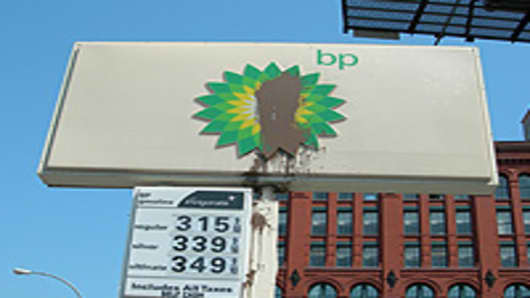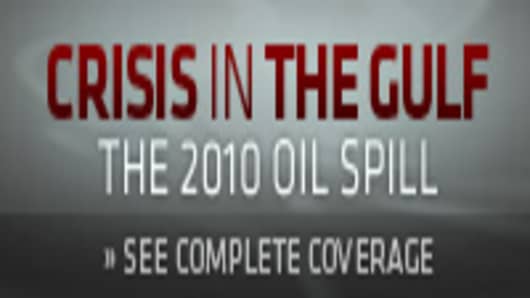Social media harnessed the support — and donations — of millions after the devastating Haiti earthquake.
Now that we're facing BP's environmental disaster, what role will social media play now?
A viral communication wave that swept Facebook and Twitter generated awareness and prompted donations for the Haiti and Chilean earthquakes earlier this year; will social media now organize an unprecedented boycott of BP?
Twitter has proven a particularly active forum for an angry conversation about the BP oil spill.
The most popular BP-related voice is as my colleague Jane Wells has written about in her blog— an impersonator: @BPGlobalPR has a legit sounding Twitter handle, but its Tweets are certainly dark jokes. "Why does everyone hate us? Can't you see? We are the underdogs! #bpcares." "We are very upset that Operation: Top Kill has failed. We are running out of cool names for these things."
This fake Twitter feed has drawn 115,197 followers, while BP's legit Twitter feed @BP_Americahas drawn fewer than 10,000 followers. The legit feed has been criticized for not being effusively apologetic. But the real surprise is the fact that BP hasn't yet shut down its impersonator — is there no point?
Will all this attention have a tangible impact?
Boycott BP has nearly 330,000 fans on Facebook—it's urging a worldwide boycott of all BP brands and services. This site is urging followers to protest not just BP gas stations, but also "Wild Bean Cafe," a coffee shop concept BP runs in Europe, South Africa and Australia. BP's name is no where near that Wild Bean cafe logo, but organizers are doing their best to make sure that the cafe line goes down with its parent company.
Anger about the oil spill is infiltrating every day web activity.
Earlier this week a DC-based web design company launched an "Oil Spill Firefox Plugin," which blacks out all web mentions of BP with oil spill blobs. It's a literal, visual representation.
As people await progress in the gulf, reading articles about the spill with the name of the offending company blacked out, will they make the effort to avoid BP-related companies? The power of social media is still growing and evolving — the BP story is far from over and so is the way social media responds to it. I'm waiting to see what could be an equivalent response to the money and power Twitter and Facebook tapped into in Haiti.
What do you think the social media graph will yield? Share your thoughts in our comment section!
Questions? Comments? MediaMoney@cnbc.com




